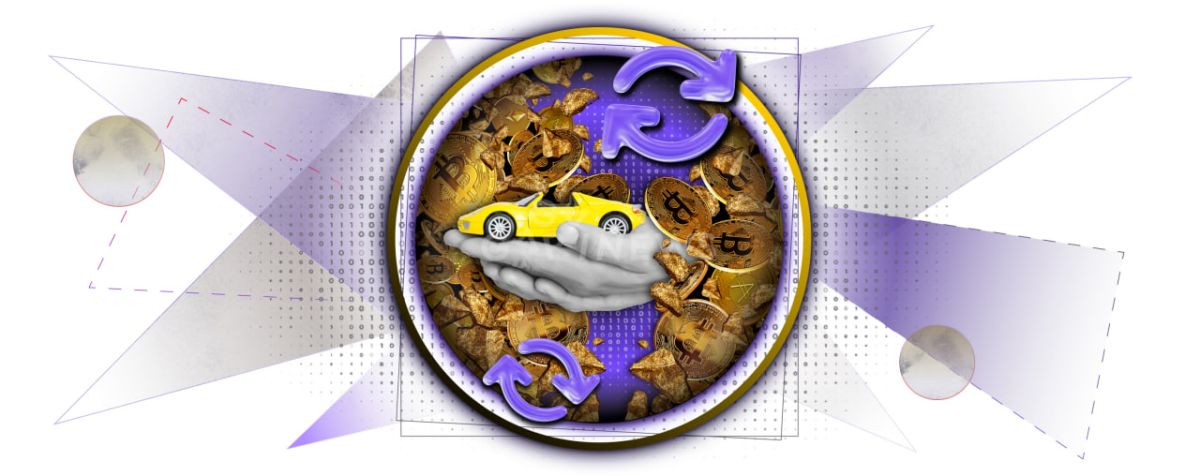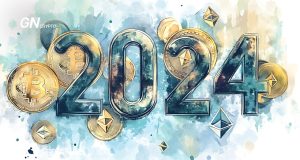How blockchain can change the global auto industry

The potential for using blockchain in the automotive industry goes far beyond trading cars for crypto. Auto giants are closely following the development of blockchain technology and are ready to actively use its potential. What’s more, perennial competitors have banded together to standardize industry-wide blockchain adoption.
On this page
Can you buy a car with crypto? People want to use bitcoin for big purchases, so car companies have started giving them that option. True, there are no car manufacturers, all dealers of which accept cryptocurrency payments. But in some car dealerships of the world's largest brands, it is already possible to pay with crypto, mainly in Western countries. These are Rolls-Royce, Bentley, Bugatti, Lamborghini, Aston Martin dealers, etc. You can pay for a car with cryptocurrency without problems in Ukraine, mainly in the second-hand market. At the same time, the auto industry giants are focusing on using blockchain technology to improve business processes.
Blockchain will be the basis for the car market functioning soon
It all started with automakers experimenting with blockchain proof of concept. But 4 years ago, the Mobility Open Blockchain Initiative (MOBI) was launched at the Future Blockchain Summit in Dubai. Leading automotive companies, including BMW, Renault, General Motors, Ford, and others, founded this consortium. The share of MOBI founders in the global production of vehicles exceeds 80%. Despite the market competition, all participants saw the need to work together and standardize the use of blockchain across the industry.
Today, MOBI's open blockchain innovation development model includes the following areas:
- Vehicle identification (Vehicle ID)
- Mobility and insurance
- Introduction of electric vehicles
- Finance, securitization, and smart contracts
- Supply chains and others.
Most of the MOBI working groups have already created relevant industry standards. Soon they will become the basis for interoperable decentralized mobile applications. What will it look like in practice?
What problems of the car market will blockchain solve?
Thus, the vehicle ID will provide access to all vehicle data, starting from the assembly line. Ownership history, accidents, overhauls, mileage… Implemented using blockchain technology, Vehicle ID ensures that all information is entirely authentic. And for example, buyers of used vehicles will be able to independently check the car's history and avoid unpleasant “surprises”. And data on the current technical condition of the car will be helpful in repair shops.
The exchange of traffic accident data will make communication between insurance companies and customers more efficient. Any fraudulent claims will be detected much faster. Blockchain will also simplify the conclusion of insurance contracts and the collection of related documents.
It’s also a solution for recalling a batch of cars due to a malfunction discovered by the manufacturer. If the car has already been sold, it is difficult to track its further “path”. Blockchain will provide a proper system for informing the car owner about the situation that has arisen.
Another example is the automaker's control over supply chains. Even the industry giants are not immune from dishonest or fraudulent actions on the part of counterparties. Information about the volume of deliveries, the goods origin, mutual settlements, etc. may need to be more reliable. Blockchain provides transparency and immutability of data at all stages of production – from the search for raw materials and components to information about the operation of a specific assembly line or technical control of manufactured products.
The content on The Coinomist is for informational purposes only and should not be interpreted as financial advice. While we strive to provide accurate and up-to-date information, we do not guarantee the accuracy, completeness, or reliability of any content. Neither we accept liability for any errors or omissions in the information provided or for any financial losses incurred as a result of relying on this information. Actions based on this content are at your own risk. Always do your own research and consult a professional. See our Terms, Privacy Policy, and Disclaimers for more details.


























